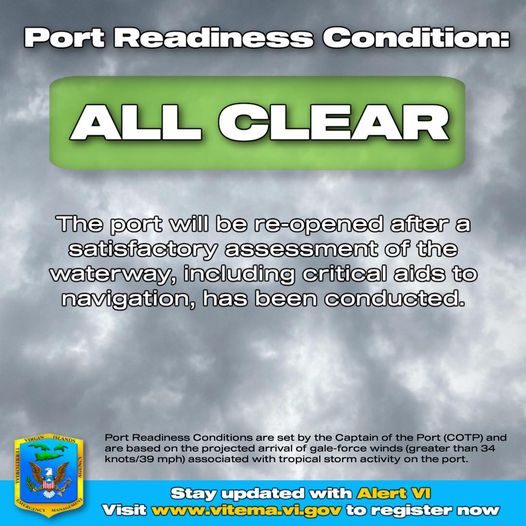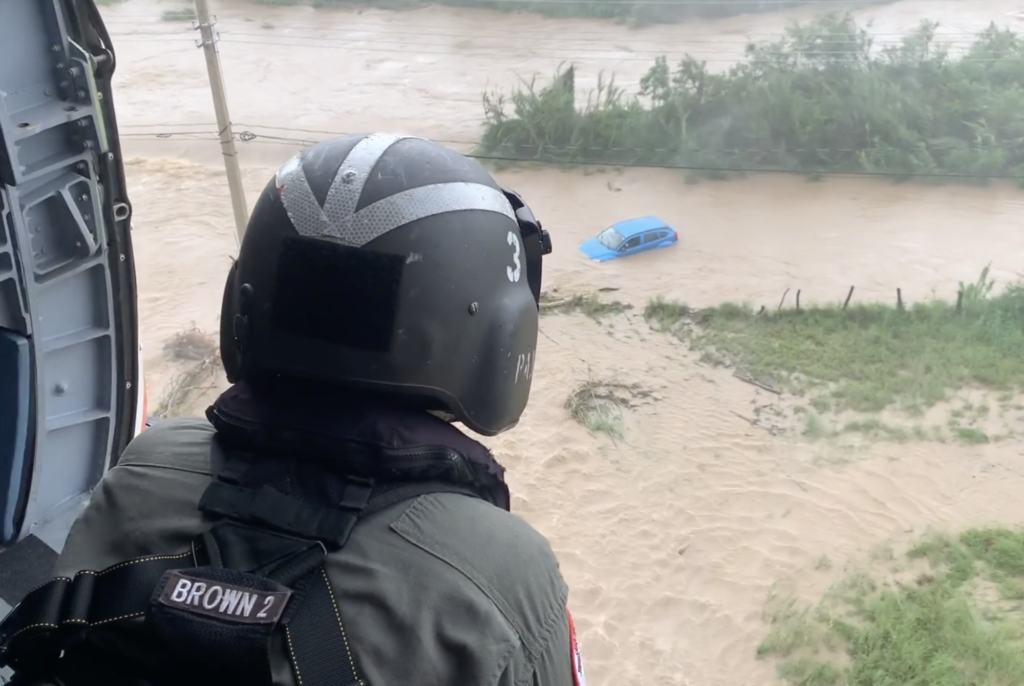SAN JUAN — Personnel from the Seventh Coast Guard District in Puerto Rico and the U.S. Virgin Islands are assessing ports and waters impacted in the aftermath of Hurricane Fiona, Tuesday.
Currently, all ports in Puerto Rico are open to commerce, with the port of San Juan to be open only during daylight hours.
During Port Condition FOUR, port facilities are open to all commercial vessel traffic and cargo operations may resume, including bunkering and lightering. All mariners are advised to use caution due to floating debris and report any abnormalities to the Coast Guard.

Mariners can view the latest port updates on the Coast Guard’s Homeport site.
As Fiona continues to travel through the Caribbean islands and into the Atlantic, the Coast Guard is reminding the public of these important safety messages and warnings:
- Stay off the water. The Coast Guard’s search and rescue capabilities degrade as storm conditions strengthen. This means help could be delayed. Boaters should heed weather watches, warnings and small craft advisories.
- Evacuate as necessary. If mandatory evacuations are set for an area, the public should evacuate without delay. Coast Guard personnel and other emergency responders may not be able to evacuate or rescue those in danger during the storm.
- Secure belongings. Owners of large boats are urged to move their vessels to inland marinas where they will be less vulnerable to breaking free of their moorings or to sustaining damage. Trailer-able boats should be pulled from the water and stored in a place that is not prone to flooding. Those who are leaving their boats in the water are reminded to remove EPIRBs and to secure life rings, lifejackets and small boats. These items, if not properly secured, can break free and divert valuable search and rescue resources to ensure people are not in distress.
- Stay clear of beaches. Wave heights and currents typically increase before a storm makes landfall. Even the best swimmers can fall victim to the strong waves and rip currents caused by hurricanes. Swimmers should stay clear of beaches until local lifeguards and law enforcement officials say the water is safe.
- Be prepared. Area residents should be prepared by developing a family plan, creating a disaster supply kit, having a place to go, securing their home and having a plan for pets. Information can be found at Ready.gov.
- Stay informed. The public should monitor the progress and strength of the storm through local television, radio and Internet. Boaters can monitor its progress on VHF radio channel 16. Information can also be obtained on small craft advisories and warnings on VHF radio channel 16.
People in distress should use 911 to request assistance whenever possible, or VHF radio channel 16 for mariners. Social media should not be used to report distress.
[wpedon id=23995]


